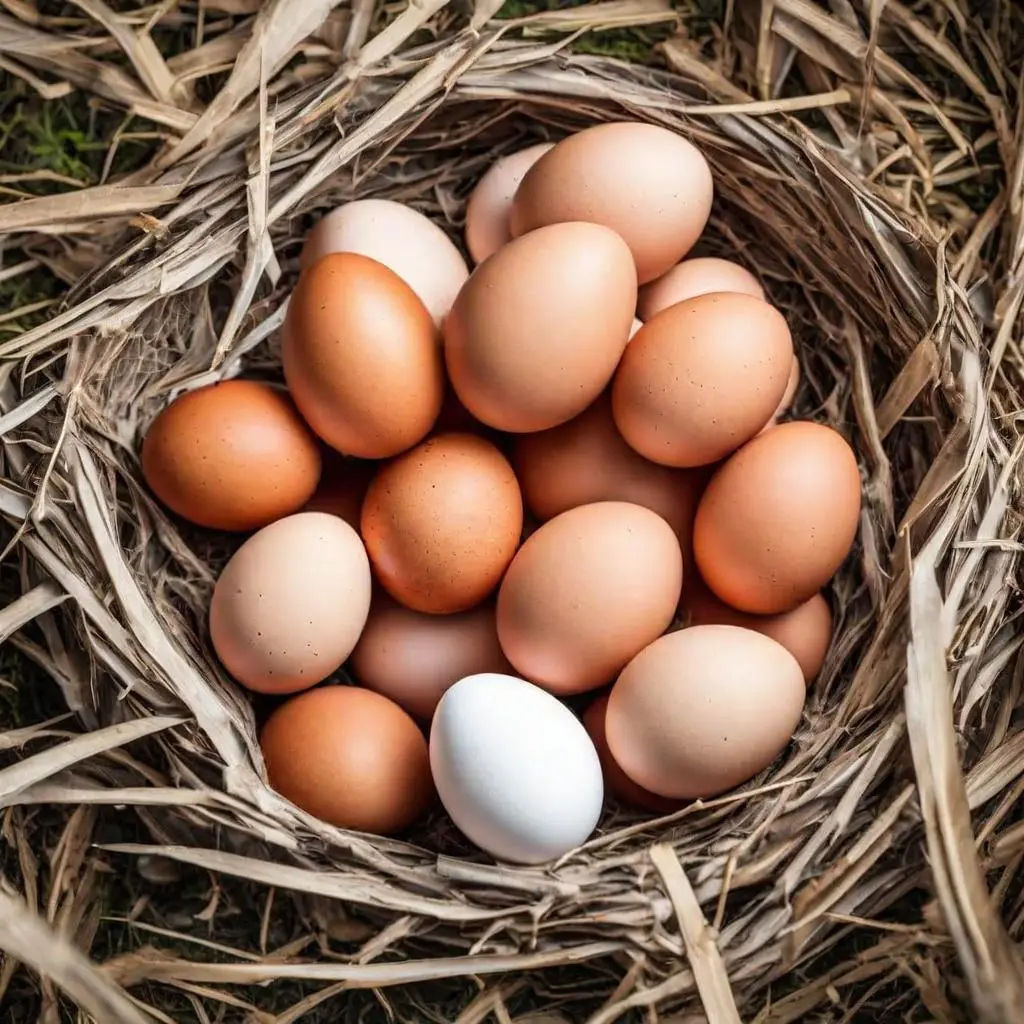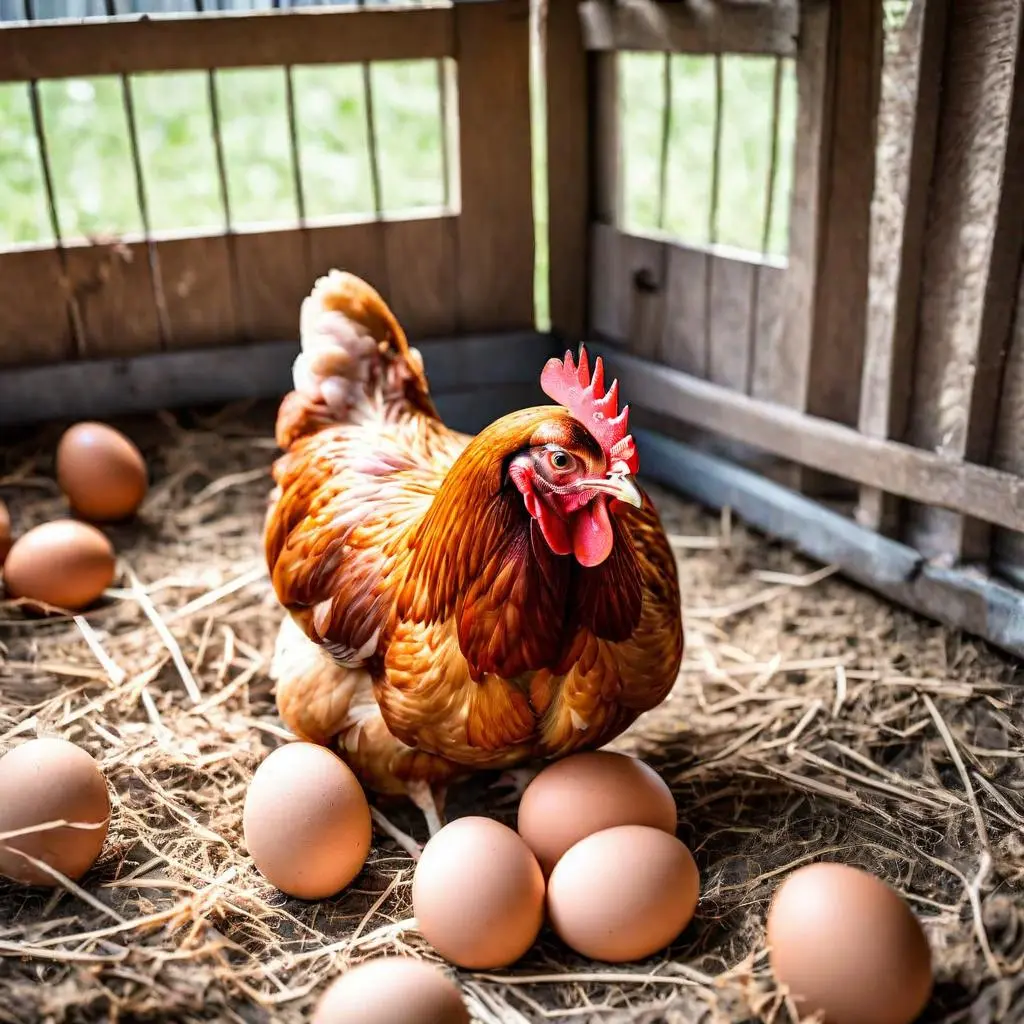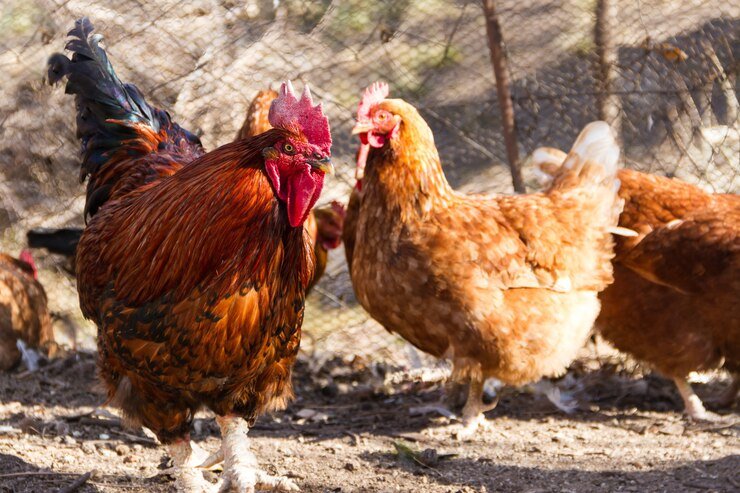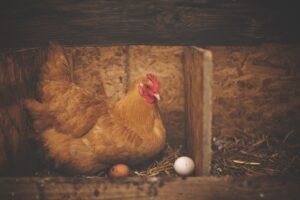How Many Eggs Do Chickens Lay? Cracking the Mystery!

When starting the topic of ” how many eggs do chickens lay?” Probably, we raise a chicken to obtain something from it.The main purpose is to get Eggs. Chicken eggs are an extremely valuable and nutritious food. which is included in most foods and is packed full of beneficial ingredients and trace components.
To get the maximum number of eggs, owners choose breeds of laying more productive hens. Sometimes you will be really surprised to see how many eggs a hen lays in her lifetime, the statistics can be very large.
It is necessary to take into account the age of chickens because their productivity directly depends on it.
Some breeds are 6 months old, others only 7-8 months.
You will learn about the interesting process of producing chicken eggs, the average chicken production rates, methods for raising eggs, and much more.
Check more Chicken feeder and waterer
Introduction to Egg Laying in Chickens.

I have been in this industry for the past 3 years and have experience in how many eggs do chickens lay matters. As you know Chickens are renowned for their ability to produce eggs, a trait that has been selectively bred in domesticated fowl for centuries.
Egg laying is a natural part of a hen’s reproductive cycle, driven by hormonal changes and environmental cues. While all female chickens have the potential to lay eggs, the quantity and frequency of laying can vary widely depending on several factors.
How many eggs do chickens lay in a day?
An ordinary chicken, produced under ideal conditions for storage and fed premium food, it can yield one egg every day. In practice, this number is often one egg every two days, that is, every day.
An important indicator that affects the productivity of chickens is the time of year. Many people are interested in how many eggs a hen lays in winter, therefore, often there is not even one. Often, chickens stop laying eggs in the cold season, and egg laying is restored only at the beginning of spring warming. At best, expect one egg per week.
How many eggs do chickens lay in a week?
Under good conditions, the chicken lays at least 3-4 eggs per week. T get Highly productive egg, we have to focus on breed of chicken, quality of feed, time of day and season.
How many eggs do chickens lay in a month?
The number of eggs obtained per month also depends on the same factors. Usually this number is at least 15 eggs. Maximum, again, 30 eggs, is one daily.
Factors Affecting Egg Production
- Breed
Different chicken breeds have been developed for various purposes, including egg production. some breeds like Rhode Island Reds and Leghorns are well known for their numerous egg-laying prowess, while others can place more value on qualities like meat quality or attractive feathers.
- Age
Age plays a significant role in egg production, with hens typically reaching peak laying performance around 6 to 8 months older. As hens age, their egg production tends to decline, although some older hens may continue to lay eggs sporadically.
Health
The overall health and well-being of chickens directly impact their ability to lay eggs. Enough housing, access to clean water, and a healthy diet are necessary to encourage the best possible egg production.The egg-laying production will influence the egg’s progress by stress, illness, and infections.
- Environmental Factors
As per my experience, Environmental conditions, including temperature, daylight duration, and housing conditions, can influence egg production. Since chickens are sensitive to environmental changes, things like excessive heat or crowding can have a detrimental effect on how many eggs they lay.
Average Egg Production per Year
when answering the question to how many eggs do chickens lay, A healthy laying hen can produce anywhere from 250 to 300 eggs per year under optimal conditions. However, It might differ significantly depending on breed, age, and environmental conditions.
Leghorn chickens lay up to 340 eggs domestic chickens lay around 70 to 80 eggs a year. However, a high-quality domestic chicken can lay up to 140 eggs per year.
Peak Egg-Laying Period
I noticed that most chickens reach peak egg production in their first year of laying, with production gradually declining later.
During their peak laying period, hens may lay eggs consistently throughout the year, with a slight increase in production during the spring and summer months
Variability in Egg Production
It’s essential to recognize that egg production can be variable, even among chickens of the same breed and age. Health difficulties, Stress, and nutrition can all impact egg production, with some birds laying more consistently than others.
Commercial Egg Production vs. Backyard Chickens

Commercial egg production facilities are highly optimized environments to maximize egg yield and efficiency. In contrast, due to variables including nutrition, housing, and availability of outdoor space, backyard hens may exhibit a wider variety of egg-laying patterns.
Strategies to Increase Egg Production
- Optimal Nutrition
First, we have to give importance to providing chickens with a balanced diet rich in essential nutrients is crucial for supporting optimal egg production. A diet high in protein, vitamins, and minerals can help ensure that hens have the energy and resources needed for egg-laying.
- Proper Housing and Environment
important Creating a comfortable and stress-free environment is essential for encouraging consistent egg-laying. A hen’s living quarters must include enough housing, nesting boxes, and access to clean bedding.
- Stress Reduction
Also, concern about Minimizing sources of stress, such as overcrowding, predator threats, or abrupt changes in routine, can help maintain steady egg production. Stress can disrupt hormonal balance and suppress egg laying in chickens.
Egg Laying in Different Breeds
Some varieties of chicken are known to lay eggs exceptionally well. Breeds like the Leghorn, Australorp, and ISA Brown are popular choices for backyard egg production due to their consistent and prolific laying habits.
Understanding Egg Laying Cycles
Chickens typically follow a predictable egg-laying cycle, influenced by hormonal changes and daylight duration. Most hens lay eggs on a daily or near-daily basis, with peak production occurring in the morning hours common Myths about Egg Production
Common Myths about Egg Production
- Compared to white eggs, brown eggs are healthier.
- Hens need a rooster to lay eggs.
- Feeding chickens certain foods can change the color of their eggs.
Sustainability and Egg Production
In the journey of Raising backyard chickens for egg production can be a sustainable and rewarding practice. Chickens are a natural supply of fertilizer, help with pest control, and contribute to a more self-sufficient lifestyle.
Impact of Artificial Lighting on Egg Production
Artificial lighting can be used to manipulate egg production in chickens, particularly during the winter months when daylight hours are shorter. Year-round consistent egg production and an extended laying season can be achieved the use of supplemental lighting.
Egg-Laying Behavior in Free-Range Chickens
Free-range chickens have the freedom to roam and forage outdoors, which can influence their egg-laying behavior. While free-range hens may lay eggs in variety of locations, providing access to suitable nesting areas can encourage them to lay eggs in designated nesting boxes.
Conclusion
To Keep the chickens happy and healthier we should Understand the elements influencing egg production in chickens. Backyard chicken enthusiasts can enjoy a consistent supply of fresh eggs all year by providing appropriate nutrition, proper housing, and limiting stressors. Also, it offers endless learning and exploration opportunities for your poultry-raising experience or flock plans.
Usually, chickens lay one egg a day. But if a chicken lays two eggs in a day, it could signal stress, poor nutrition, or health problems.
Ensure that your chickens have a healthy diet, fresh water, and a cozy place to live.Speaking with a veterinarian that specializes in poultry might offer insightful advice if you observe any strange behaviors or trends in your hens’ egg-laying.”
Typically, a hen will lay around 12-15 eggs before she decides to sit on them and start incubating. However, this can vary depending on the individual hen and the breed.
Chickens generally start laying eggs around 5-6 months old and continue laying consistently for about 2-3 years. After that, their egg production gradually declines. Some chickens may lay eggs sporadically for a few more years, but by around 5-7 years old, most chickens stop laying eggs altogether.
